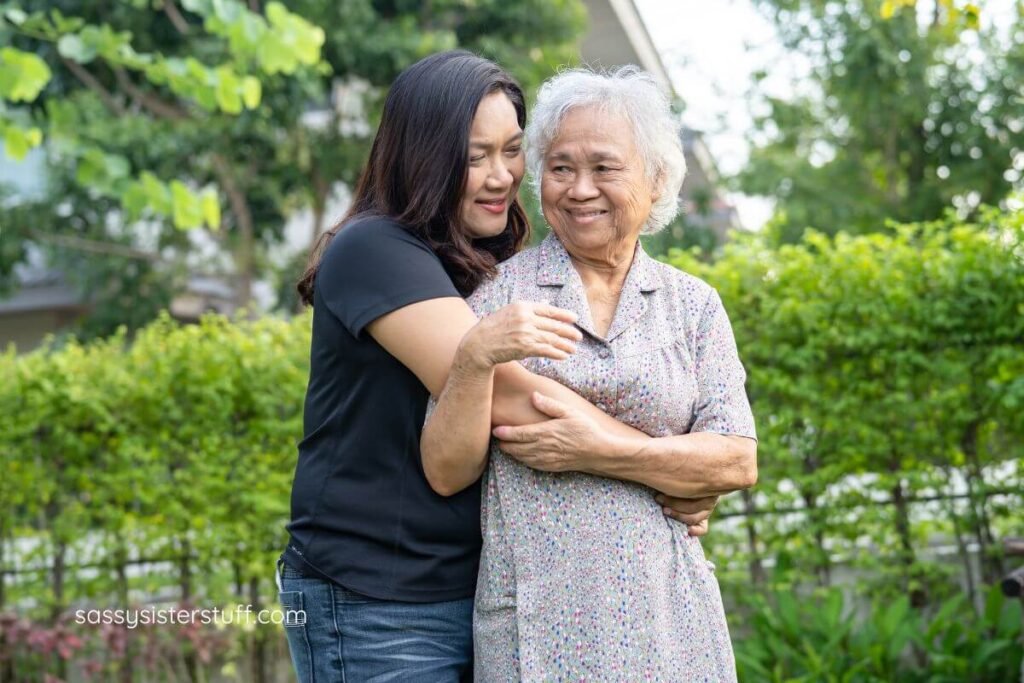7 Effective Caregiving Solutions to Reduce Sibling Drama
Family is supposed to be a team. Until a parent falls ill, then suddenly everyone’s on a different page.
Welcome to the world of sibling caregiving conflict — where past grievances, differing priorities, and unchecked emotions can turn even the most reasonable adult children into territorial teenagers.
The irony? Everyone wants what’s best for Mom or Dad. But the definition of “best” rarely aligns across the dinner table.

Eventually, most of us are going to be faced with caregiving for our elderly parents or other loved ones. Let’s look at peaceful caregiving solutions that will help you avoid the drama that often comes with family caregiving.
1. The Tug-of-War Beneath the Surface
These conflicts are rarely just about who drives Mom to her appointment. They’re about who was always the favorite. Who left home and “never looked back.” Who’s been doing all the work and who’s been conveniently unavailable.
Caregiving digs deep into family history. That’s why disagreements about medications or assisted living often spiral into unresolved sibling tension. Add money and time into the mix — two resources always in short supply — and things can get combustible. Don’t go there with your family.

2. Clearly Define Roles and Responsibilities
One major reason conflicts flare? Vague expectations. You need structure. A clear division of responsibilities prevents burnout and minimizes micromanagement.
Some roles are hands-on—grocery runs, managing medication, being on-call at midnight. Others are logistical—handling insurance claims, paying bills, scheduling home care.
The latter often gets dismissed as “less work.” Don’t fall into that trap. A spreadsheet warrior is just as essential as the sibling doing the heavy lifting.
Put it in writing. Share it. Revisit it every few months. Because needs change. So should the plan.
3. Neutral Territory Is a Lifesaver
Holding meetings at your parent’s house can stir up emotions. It’s better to pick a neutral location — or even better, go virtual.
This keeps the tone professional and removes visual triggers like childhood photos or that antique lamp everyone secretly wants.
Establish a simple rule: Focus on your parent’s needs, not each other’s flaws. Better yet, treat it like a board meeting. Agenda. Time limit. Action items. Emotions allowed — drama not.

4. Outsourcing Isn’t Abandonment
Not every sibling can (or should) provide direct care. But outsourcing isn’t defeat. It’s delegation.
When arguments arise over how often someone visits or whether another sibling is doing enough, pause.
Ask: Are we fighting because tasks are uneven — or because the expectations are unrealistic?
There are professionals trained to help aging parents. Nurses. Meal delivery services. Financial advisors. And yes, reliable home care agencies that can fill the gaps none of you can — or want to.
Outsourcing is sometimes the smartest move a family can make. Especially when it protects sibling relationships from slow, painful erosion.
5. The Sibling Who Opts Out
Every family has one. The sibling who stays silent, avoids calls, or “just can’t deal.” Resentment builds — but confrontation usually backfires.
Stop expecting equal effort. Instead, expect clarity. If someone won’t participate, they owe the rest of you a straight answer. Not guilt. No excuses. Just the truth.
Then move on. Use your energy where it counts. You may be surprised. That same sibling may later step up — just not in the way or on the timeline you imagined. That’s not betrayal. That’s human complexity.
Accept that “fair” doesn’t always mean “equal” in family caregiving and avoid guilt-tripping or scorekeeping.

6. Keep the Big Picture in Mind
Your parents are ageing. Life is shifting. This isn’t about winning an invisible medal for “most caring child.”
It’s about preserving dignity, reducing chaos, and, if possible, keeping the family intact after the crisis fades. Because eventually, this moment will pass.
And when it does, the memory of how you treated each other will linger a lot longer than who refilled the pillbox on Thursday.
Let the plan evolve. Let the emotions rise and fall. Just don’t let caregiving become the wedge that never goes away. In the end, you want the family together.
Stay focused on your parent’s needs and remember this will not last forever.
7. Maintain Open and Respectful Communication
Open, ongoing communication is the foundation of peaceful caregiving. Family meetings — whether in person or via video call — give everyone a chance to stay informed, share updates, and voice concerns in a structured, respectful way.
These regular check-ins help prevent misunderstandings and keep the focus on your loved one’s well-being rather than old sibling tensions.
To keep things running smoothly, use shared digital tools like calendars or caregiving apps to track appointments, medications, and responsibilities.
This not only keeps everyone in the loop but also reduces confusion and resentment over who’s doing what.
Creating a written care plan is another game-changer. When expectations are clear and agreed upon in writing, there’s less room for conflict.
It also ensures continuity of care, especially when multiple people are involved. When everyone has a voice and a shared understanding, you build a more united and drama-free caregiving team.

Final Thoughts about Caregiving Solutions
Caring for a loved one shouldn’t tear a family apart — it should bring you together with compassion, clarity, and cooperation. While disagreements among siblings are natural, they don’t have to derail the caregiving journey.
With open communication, clear expectations, and a willingness to work as a team, it’s absolutely possible to care without conflict.
Remember, you’re not just managing tasks — you’re nurturing relationships, honoring your loved one, and showing up with grace during one of life’s most tender seasons.
And when in doubt? Take a breath, lead with love, and remind yourself — you’re doing the best you can — and that’s more than enough.
- How to Create an At-Home Care Plan (With Template)
- Strategies for Navigating Family Dynamics in Caregiving
- 21 Tips for Dealing with Irrational Elderly Parents
Love to ALL! ~ Susan







